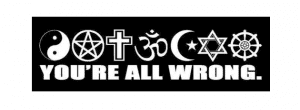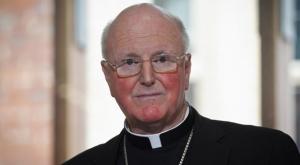Although it is in and out of the mainstream media, the problem faced by Muslims in Murfreesboro Tennessee goes on and on. Their effort to build an Islamic center faces continued protests as citizens try to “protect” their city from the deleterious influences of a “foreign” religion. Various anti-Shari’a law bills wending their way through state legislatures are intended to have the same effect.
But let’s not forget that this isn’t just an American issue. In the United States we live in a society where there is effective law enforcement and real protections of human rights and legal status. Our free press can expose the roots of Islamophobia, as in the report at: http://www.americanprogress.org/issues/2011/08/islamophobia.html.
Elsewhere in the world there are also movements to keep communities “free” of what are believed to be degrading foreign religious influences. But in those cases there is often no effective law enforcement and public officials are corrupt or powerless. The last two years have seen numerous attacks against Christians and Ahmadiyya Muslims in Indonesia – a country whose constitution guarantees religious freedom but whose officials, from the president on down, refuse to use the power of the state to protect that freedom. The change in government in Egypt has effectively lessened attacks by Muslims on Coptic Christians. In India attacks by Hindu nationalists against Christians and Muslims continue, again with the complicity of at least local governments. And in Israel we have seen public assaults by ultra-orthodox Jews on other Jews that don’t share their religious convictions. Nor are Jews necessarily safe in Europe, although again relatively effect government lessens (but does not eliminate) the threat of physical violence.
And in each case, among the many causes, one stands out: religious citizens in a particular country are trying to keep their communities free from what are seen as alien religious influence. These citizens associate their national identity with a particular religious identity. In the United States it is a supposedly “Judeo/Christian” identity. In Indonesia and much of the Muslim world it is an Islamic identity. In India it is a Hindu identity. In Sri Lanka a Buddhist identity. And of course in Israel it is a Jewish identity.
Across the world the paradigm of nationhood and civic identity that arose out of the enlightenment and that was forged in the American and French revolutions is under attack from citizens demanding that their religious identity be affirmed not just in public life, but in the public sector. What does that mean for the future of nations that are already religiously plural? How should we as citizens understand the relationship between national identity and religious identity? How can we as religious citizens negotiate a shared civic identity? That will be the subject of the next several blogs.











